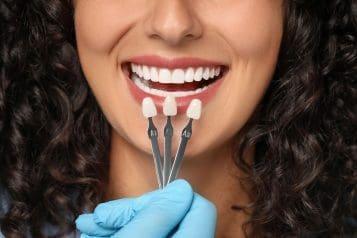For years, dentists have told us to brush and floss daily, but is flossing really as essential as we’ve been led to believe? With conflicting information online, many people wonder if skipping flossing is truly detrimental to oral health or just an optional extra. Let’s break down the facts behind flossing, its benefits, and whether there are effective alternatives.
 Photo Credit: ProStock-Studio/Shutterstock
Photo Credit: ProStock-Studio/Shutterstock
Why Flossing Matters
Brushing your teeth is crucial, but it only cleans about 60% of the tooth surface. The remaining 40%—the tight spaces between teeth—can trap food particles and plaque, leading to decay and gum disease. Flossing helps remove this buildup, reducing the risk of cavities and preventing gingivitis, the earliest stage of gum disease.
What Happens If You Don’t Floss?
Neglecting flossing can have long-term effects, including:
- Plaque Buildup & Cavities – Plaque is a sticky film of bacteria that forms on teeth. If not removed, it hardens into tartar, leading to cavities and gum irritation.
- Gum Disease – The first sign of gum disease is bleeding gums, which can progress to periodontitis, a severe infection that can cause tooth loss.
- Bad Breath (Halitosis) – Food trapped between teeth decays, creating odor-causing bacteria that contribute to persistent bad breath.
Is Flossing Really Necessary?
A 2016 report questioned the strength of scientific evidence behind flossing recommendations, causing some to doubt its necessity. However, dentists and oral health experts still agree: Flossing remains one of the best ways to remove plaque between teeth and prevent gum disease.
Are There Alternatives to Traditional Flossing?
If you find flossing difficult or tedious, there are other ways to clean between your teeth:
- Water Flossers – Devices like Waterpik use a pressurized stream of water to remove debris and bacteria from between teeth.
- Interdental Brushes – Small, bristle-tipped brushes designed to clean between teeth and around dental work.
- Floss Picks – Pre-threaded floss on a plastic handle, making flossing easier for those with dexterity issues.
The Best Oral Hygiene Routine
For optimal oral health, dentists recommend:
- Brushing twice a day with fluoride toothpaste
- Flossing or using an alternative at least once a day
- Regular dental check-ups and cleanings
- Limiting sugary foods and drinks
Final Verdict: Should You Floss?
Yes! While new tools may provide alternatives, the goal remains the same—removing plaque and preventing gum disease. Whether you use traditional floss, a water flosser, or interdental brushes, what matters most is cleaning between your teeth daily. Your smile will thank you!
For any questions or personalized oral hygiene advice, reach out to Dr. Sam Latif.
For more information, visit Dr. Sam Latif's social media:

























